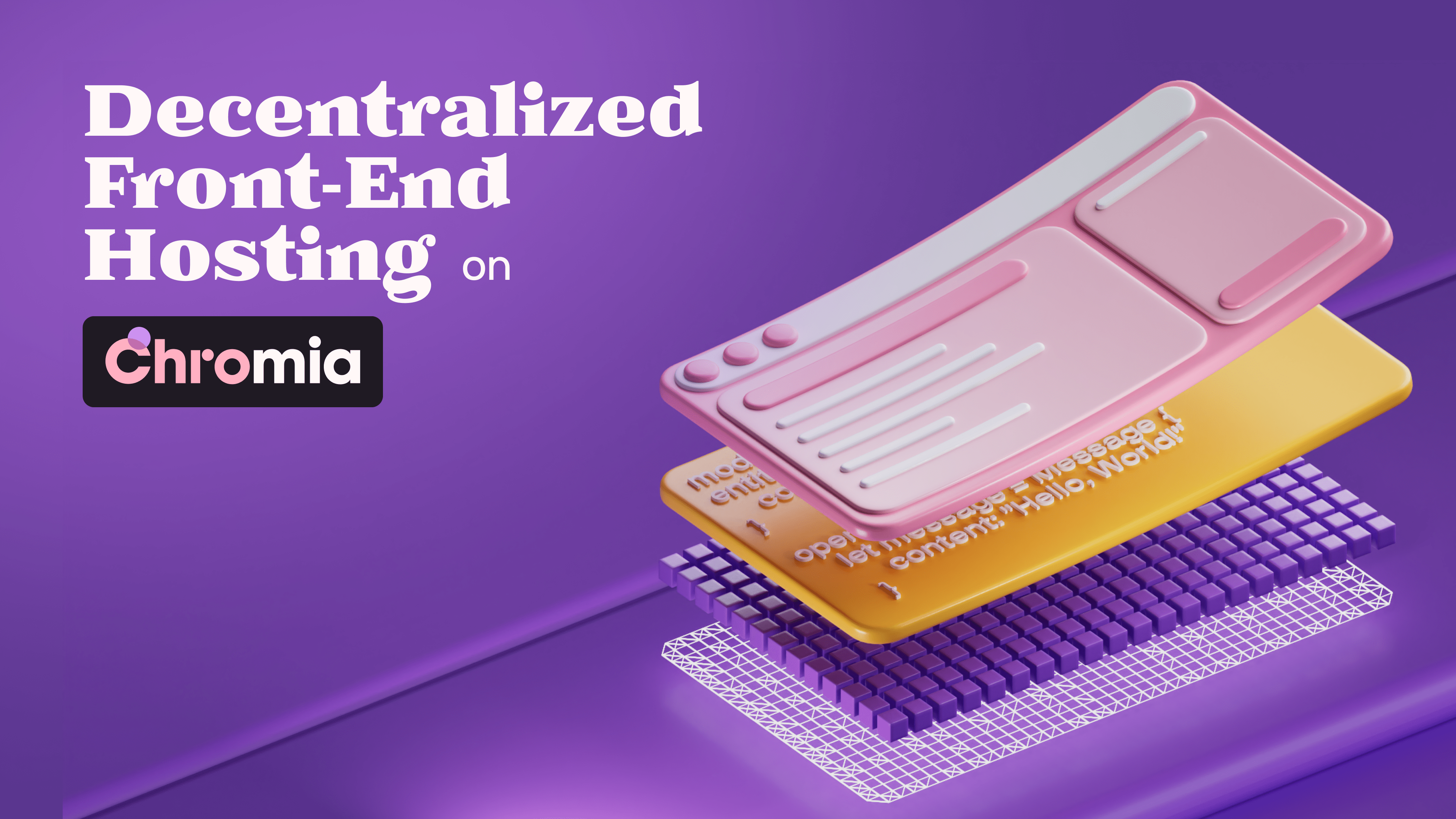At Chromia, our vision centers on enabling decentralization across multiple layers of blockchain applications. From decentralized data storage with Filechain to on-chain metadata for collectibles and real-world assets (RWAs), we are committed to pushing the boundaries of on-chain functionality. This includes providing transparency for AI systems, enabling on-chain logic for games, and now, taking a significant step toward decentralized front-end hosting.
The recent Asgard upgrade and the Oracle Extension demo introduced a subtle yet powerful concept: using Chromia’s blockchain as a decentralized web hosting solution. While this advancement might have flown under the radar, it demonstrates our ongoing dedication to decentralizing as much of the application stack as possible.
How Does It Work?
By using a method that takes frontend code (such as HTML and Javascript) and compiling it into a static format. This static version can then be uploaded to the Chromia blockchain. Once on the blockchain, all the data required by a user’s browser to display a dapp’s front end is stored and served directly from the network. In simple terms, Chromia becomes the host for your application’s user interface, eliminating reliance on external hosting providers.
A Real-World Example: Oracle Extension Demo
The Oracle Extension demo page, launched earlier this month, provides a real-world example of this concept. The page itself is entirely hosted on the Chromia blockchain, and the data feeds displayed are also sourced directly on-chain. This means that when you visit the demo, everything you see is delivered entirely by the Chromia Network. There’s no dependency on external web hosting services.
While the Oracle Extension demo is a relatively simple proof of concept, it showcases the potential of this technology. It opens the door for future developers to build more complex applications that prioritize decentralization across all components.
Potential Applications
The possibilities for decentralized front-end hosting are expansive. By leveraging Chromia’s blockchain, developers can:
Enhance DeFi Platforms: Ensure greater security and transparency by hosting user interfaces entirely on-chain.
Build Web-Based Games: Eliminate dependencies on centralized servers, creating truly decentralized gaming experiences.
Develop AI Interfaces: Host AI model dashboards or interaction layers on-chain, complementing Chromia’s role as a data transparency layer for AI systems.
Support External Clients: Use Chromia to host static webpages or applications for non-blockchain projects. For example, a Web2 company could use Chromia to securely distribute informational resources or provide immutable public records.
Why Does This Matter?
Decentralized front-end hosting aligns with Chromia’s core philosophy of prioritizing decentralization wherever possible. It offers developers a new tool for creating applications that remain independent of centralized service providers, ensuring greater security, transparency, and resilience.
Looking Ahead
As with any nascent concept, part of the excitement lies in exploring its potential. We are eager to see how developers leverage this capability to create innovative applications, whether blockchain-based or not. From decentralized finance to gaming and beyond, decentralized front-end hosting could unlock new possibilities for both the Web3 and Web2 worlds.
Chromia’s journey toward decentralization is ongoing, and decentralized front-end hosting is another step in this direction. We look forward to seeing how this idea evolves and grows.
About Chromia
Chromia is a Layer-1 relational blockchain platform that uses a modular framework to empower users and developers with dedicated dapp chains, customizable fee structures, and enhanced digital assets. By fundamentally changing how information is structured on the blockchain, Chromia provides natively queryable data indexed in real-time, challenging the status quo to deliver innovations that will streamline the end-user experience and facilitate new Web3 business models.
Website | Twitter | Telegram | Facebook | Instagram | Youtube | Discord
